Related Research Articles
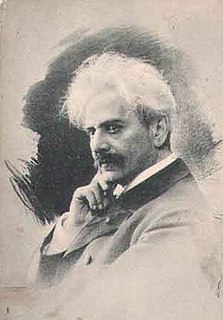
David Popper was a Bohemian cellist and composer.
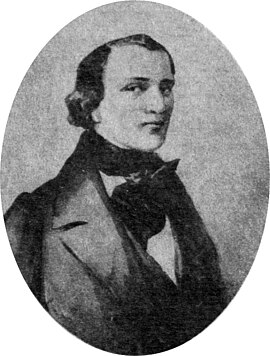
Joseph Kaspar Mertz was an Austro-Hungarian guitarist and composer.

Johann Maria Eduard Strauss III was an Austrian composer whose father was Eduard Strauss, whose uncles were Johann Strauss II and Josef Strauss, and whose grandfather was Johann Strauss I. Born in Vienna, he was unofficially entrusted with the task of upholding his family's tradition after the dissolution of the Strauss Orchestra by his father in 1901. His talents were not fully realized during his lifetime as musical tastes had changed in the Silver Age with more popular composers such as Franz Lehár and Oscar Straus dominating the Viennese musical scene with their operettas, although his uncle, Johann Strauss II, supervised his development as a musician, a fact disputed by Eduard Strauss.
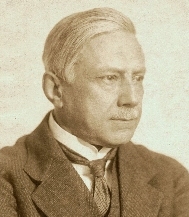
Emil Nikolaus Joseph, Freiherr von Reznicek was an Austrian composer of Romanian-Czech ancestry.
Franz Bendel was a German Bohemian pianist and composer.
Johanna Müller-Hermann was an Austrian composer and pedagogue.

Adolf Friedrich Hesse was a German organist and composer.

George Pantazi, better known by his stage name Georges Boulanger, was a Romanian violinist, conductor and composer.
Richard Wüerst was a German composer, music professor and pedagogue.
Robert Emil Lienau was a prolific German music publisher.

Roderich Mojsisovics von Mojsvár was an Austrian composer based in Graz, head of the Schule des Musikvereins für Steiermark there.

Two Songs for Voice, Viola and Piano, Op. 91, were composed by Johannes Brahms for his friends Joseph Joachim and his wife Amalie. The full title is Zwei Gesänge für eine Altstimme mit Bratsche und Klavier. The text of the first song, "Gestillte Sehnsucht", is a poem by Friedrich Rückert, composed in 1884. The text of the second, "Geistliches Wiegenlied" was written by Emanuel Geibel after Lope de Vega, and set to music in 1863. They were published together in 1884.

Tobias Haslinger was an Austrian composer and music publisher. He published works by composers including, among others, Beethoven, Bendel, Mozart, Schubert, Hummel, Weber, Strantz,and Chopin.
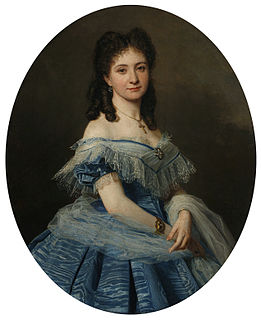
Luise Mathilde Limbach was a German soprano. She had a moderately successful career in the latter half of the 19th century. She was known for her pure voice and acting skill.
Princess Julie Furstin von Waldburg-Wurzach was an Austrian composer who published over 60 works for voice and/or piano. She was born in Vienna to Count Frans and Frantiska Dubsky von Trebomyslicz. In 1858, she married Prince Eberhard Waldburg-Wurzach, becoming his second wife. They had two daughters, Marie and Elizabeth Sophie.
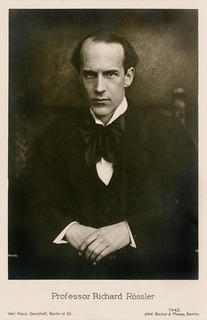
Richard Rössler, also Roessler or Rößler was a Baltic German pianist, organist, composer and music educator. In 1910, he married the pianist Dora Charlotte Mayer (1887–1951), a Württemberg pastor's daughter who had studied in Berlin with Ernst von Dohnányi and Max Bruch. The couple had three children.

Jean de Paris is an opéra comique in two acts by French composer François-Adrien Boieldieu and librettist Claude Godard d'Aucourt de Saint-Just.
References
- ↑ Hixon, Donald L.; Hennessee, Don A. (1993). Women in Music: An Encyclopedic Biobibliography. Scarecrow Press. ISBN 978-0-8108-2769-1.
- 1 2 Meyerbeer, Giacomo (2012-02-13). 1860-1864 (in German). Walter de Gruyter. ISBN 978-3-11-091811-3.
- ↑ Ledebur, Carl Freiherrn von (1861). Tonkünstler-Lexicon Berlin's von den ältesten Zeiten bis auf die Gegenwart (in German). Rauh.
- ↑ The Illustrated London News. Illustrated London News & Sketch Limited. 1852.
- 1 2 Wiegenlied von Franz Bendel aus dessen Poetischen Stunden (in German). Haslinger Hermann. 1875. OCLC 1149809302.
- 1 2 3 4 5 6 7 Cohen, Aaron I. (1987). International Encyclopedia of Women Composers. Books & Music (USA). ISBN 978-0-9617485-2-4.
- 1 2 3 Hofmeister, Adolf Moritz (1876). Hofmeisters Handbuch der Musikliteratur (in German). F. Hofmeister.
- ↑ Offenbach, Jacques (1865). Arien und Gesänge aus Die schöne Helena: Opera-Buffa in 3 Abtheilungen (in German). E. Bote & G. Bock.
- 1 2 Moniteur belge0: 1877,10/12 (in French). 1877.
- ↑ Neue Berliner Musikzeitung (in German). Ludwig. 1858.
- ↑ Verzeichnis sämmtlicher im Jahre ... in Deutschland und den angrenzenden Ländern gedruckter Musikalien, auch musikalischer Schriften und Abbildungen (in German). Hofmeister.
- ↑ Offenbach, Jacques; Crémieux, Hector Jonathan (1860). Arien und Gesänge aus: Orpheus in der Unterwelt: burleske Oper in zwei Akten und vier Bildern (in German). Bote & Bock.